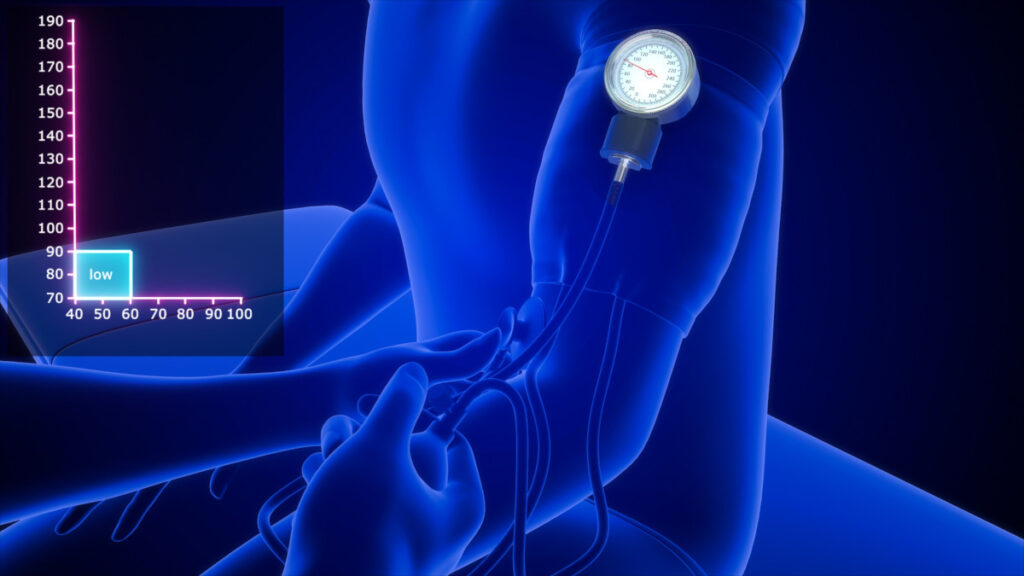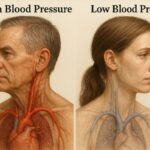What causes hypotension? Hypotension is low blood pressure, that is when your readings show numbers below 90/60 mm Hg. Here are the main causes to hypotension, as identified by the American Heart Association:
Prolonged bed rest
Bed rest for a long period of time. After 20 hours of bed rest, postural hypotension is one of the most common cardiovascular complications.
Early stages of pregnancy
A drop in blood pressure is common during the first 24 weeks of pregnancy.
Decrease in blood volume
Blood volume decreases can also result in a drop in blood pressure. Blood volume is reduced by a serious trauma, dehydration or severe internal bleeding, resulting in severe drops in blood pressure.
Some medications
Some medications can cause low blood pressure, such as diuretics and other drugs that treat hypertension; heart medications, such as beta blockers; Parkinson’s disease medications; tricyclic antidepressants; erectile dysfunction medications, particularly when used in conjunction with nitroglycerine; narcotics and alcohol. When taken with high blood pressure medications, other prescription and over-the-counter drugs may cause low blood pressure.
Some heart conditions
Low blood pressure can be caused by a number of heart conditions, including an abnormally low heart rate (bradycardia), valve problems, heart attacks, and heart failure. There is a possibility that your heart cannot circulate enough blood for your body to function properly.
Endocrine problems
In the endocrine system of the body, such problems include complications related to hormone-producing glands, such as hypothyroidism, parathyroid disease, adrenal insufficiency (Addison’s disease), low blood sugar, diabetes, and low thyroid hormone levels.
Septic shock
Septic shock is caused by bacteria entering the bloodstream from the original site of infection (usually in the lungs, abdomen or urinary tract). Toxins produced by the bacteria then damage blood vessels, causing a profound and life-threatening decline in blood pressure.
Anaphylactic shock
Anaphylactic shock is a sometimes fatal allergic reaction caused by drugs such as penicillin, foods such as peanuts, or bee or wasp stings. A sudden, dramatic drop in blood pressure is accompanied by breathing problems, hives, itching, a swollen throat, and hives.
Prolonged standing
As opposed to orthostatic hypotension, neurovascular hypotension is characterized by a decrease in blood pressure following prolonged standing, resulting in symptoms such as dizziness, nausea, and fainting. A miscommunication between the brain and the heart causes this condition to affect primarily young people.
Anemia
A lack of vitamin B-12 and folic acid can cause anemia, which can lead to low blood pressure.






